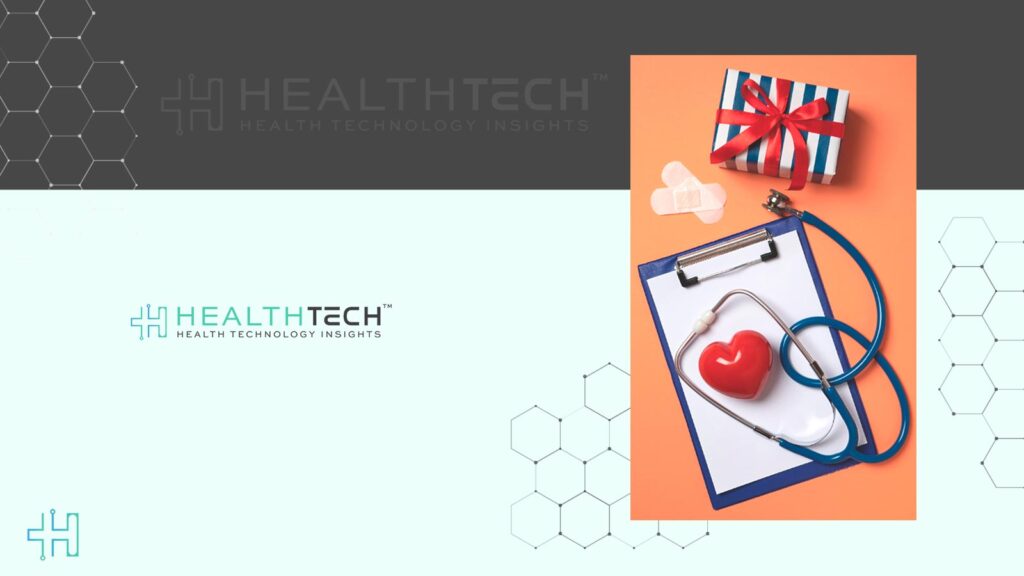The Future of Healthcare Is Here
Imagine a world where your medication tells your doctor if you’ve taken it, or a tattoo on your skin monitors your health silently and continuously. The healthcare landscape is undergoing a transformative shift, propelled by the integration of advanced technologies. Among these innovations, ingestible AI pills and smart tattoos are emerging as groundbreaking tools, offering real-time health monitoring and personalized care.
Ingestible AI pills and smart tattoos lead healthcare innovation with passive, continuous, and intuitive health monitoring. These advancements are not emerging in isolation. They are part of a broader movement toward personalized, tech-driven wellness powered by wearable technology, which has already transformed how individuals engage with their health data.
So, what exactly can they do? Let’s explore the top five ways these devices are transforming modern medicine.
1. Supporting Medication Adherence
We all realize that on-time medication every time is essential. Yet, as research indicates, roughly 50% of the patients do not take their prescriptions as planned. This leads to the loss of chances for improved results.
AI pills are small, technology-enabled capsules that are taken and send a signal to a wearable patch or mobile app when swallowed, verifying the patient’s medication. Care teams or caregivers can then receive real-time information, providing a solid support network around the patient.
In a study published in the Journal of Medical Internet Research, researchers found that these digital pills significantly improved adherence in patients managing serious mental health conditions. With such tools, providers can focus more on care and less on guesswork.
2. Continuous Monitoring with Smart Tattoos
Imagine having all your vital stats: heart rate, blood glucose level, hydration, without a smartwatch or repeated finger pricks. That’s the potential of smart tattoos.
They’re extremely thin, skin-like tattoos with biosensors that monitor key health metrics in real-time. Since they are flexible and nearly weightless, they fit seamlessly into daily life, providing constant insights without disrupting habits.
Researchers at the University of California, San Diego, have already tested sweat-based smart tattoos that detect glucose and lactate levels through skin. For people managing chronic conditions like diabetes, this kind of passive, non-invasive monitoring can be life-changing.
3. Early Detection Using the Sound of Your Voice
Here’s an interesting fact: your voice can harbor early signs of illness. From neurological conditions like Parkinson’s to mood disorders like depression, voice changes can be subtle markers of what is going on in the body.
Vocal biomarkers, powered by AI, analyze tone, pitch, and speech patterns to detect these changes, often before more obvious symptoms appear. A recent study on arXiv demonstrated that vocal analysis could accurately detect early-stage Parkinson’s disease using machine learning models.
Imagine a telehealth appointment where, just by talking, your voice helps flag something your doctor should investigate. This innovation adds a new dimension to remote monitoring and preventive care.
4. More Personalized Treatment, Tailored in Real-Time
The mission of contemporary medicine is simple: heal the patient, not the disease. That’s where these smart devices excel. The ingestible AI pills can track the way a patient’s body absorbs certain drugs, providing physicians with information on whether a dose should be adjusted.
Smart tattoos, meanwhile, assist in monitoring how the body reacts to treatments with instant feedback, minus the blood tests or exploratory surgery.
Together, these tools make personalized medicine more actionable. They don’t just collect data, they help translate it into care plans that fit each patient’s unique biology and lifestyle. The result? More effective treatments, fewer side effects, and greater confidence from patients.
5. Proactive, Preventive Care
Healthcare is shifting from reactive to proactive. Devices like smart tattoos and AI pills allow early detection of subtle physiological changes, providing a head start before conditions escalate.
Take hydration tracking, for instance. A smart tattoo could alert an athlete or an elderly patient before dehydration becomes dangerous. Or consider ingestible sensors detecting digestive abnormalities long before symptoms appear, helping prevent complications.
At imec, researchers are working on ingestible diagnostic tools that detect gastrointestinal changes in real time. These innovations represent the future of preventive health, where silent insights drive timely, data-backed interventions.
A Smarter Way to Stay Healthy
The era of medicine is already unfolding: quietly, intelligently, and often invisibly. Ingestible AI pills and smart tattoos are at the forefront of this movement, making healthcare more human by making it more personal, intuitive, and connected.
For healthtech changemakers, now is the time to embrace these tools: not just as cool innovations, but as pathways to better care, better data, and better outcomes. Let’s build a world where technology doesn’t just react to illness but helps us stay ahead of it.
Embracing the Future of Personalized Medicine
The discovery of ingestible AI pills and smart tattoos is a breakthrough in healthcare that turns passive patients into active participants in their own wellness experiences. These innovative technologies give providers and individuals alike access to real-time information, allowing for truly personalized, data-based care.
Embracing these innovations offers a powerful path toward improved outcomes, enhanced quality of life, and a future where healthcare is not just reactive but profoundly proactive and human-centered. The opportunity to redefine medicine for generations to come is here. Bold, bright, and within our grasp.
FAQs
1. What are ingestible AI pills, and how do they function in medicine?
Ingestible AI pills are small intelligent capsules containing sensors. They transmit real-time information regarding medication dosage and the way your body is reacting to treatment after ingestion.
2. How are smart tattoos assisting individuals with chronic conditions?
Smart tattoos are wearable sensors that adhere directly to your skin. They monitor important health indicators such as glucose or hydration levels in the background all day long. For a diabetic person or patients with comparable conditions, this translates to continuous, convenient health monitoring.
3. Will ingestible AI pills and smart tattoos really make patients adhere better to their meds?
Yes. These technologies offer definite, immediate verification when meds are taken. That is, physicians no longer must wonder if patients are adhering to their regimen and can provide more individualized assistance, resulting in greater health outcomes, particularly for those on complicated regimens.
4. Where does voice biomarkers leave the mixture of wearable and ingestible healthcare?
Voice biomarkers scan minuscule fluctuations in your voice that could indicate neurological or psychiatric illness. Put alongside information gathered through smart pills and tattoos, they provide a better overall image of your health and help to diagnose earlier on as well as inform more preventive, personalized treatments.
5. The future for smart tattoos and ingestible AI pills in the US healthtech space?
We are on the verge of watching these devices become more commonplace, driven by ongoing advances in technology and enabling regulations. Get ready for them to be fully incorporated into mainstream telehealth and remote care.
To participate in our interviews, please write to our HealthTech Media Room at sudipto@intentamplify.com





